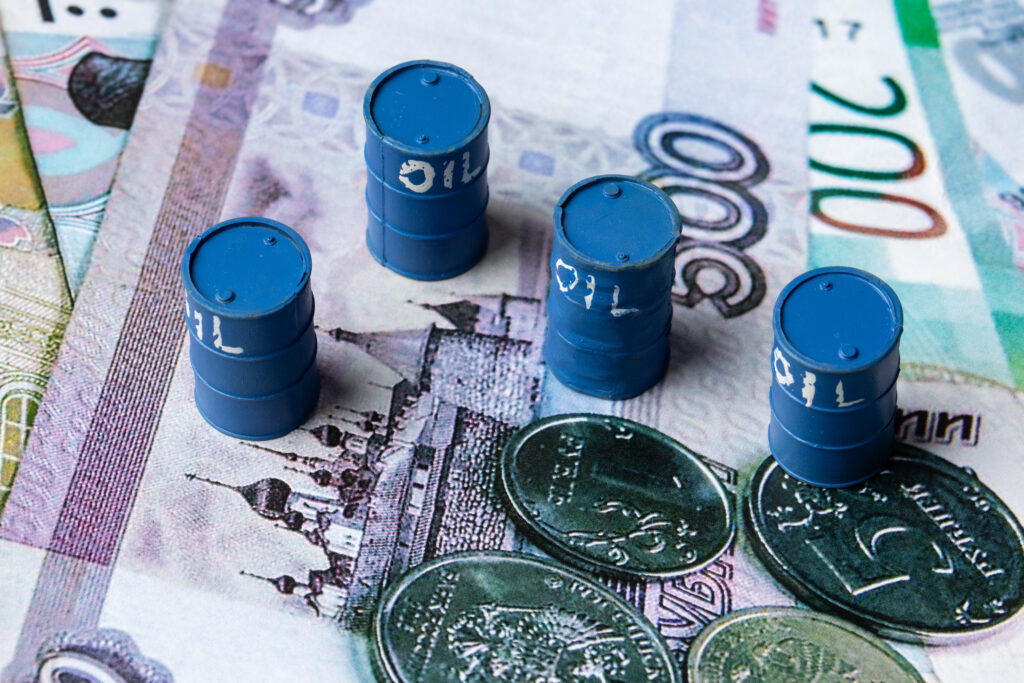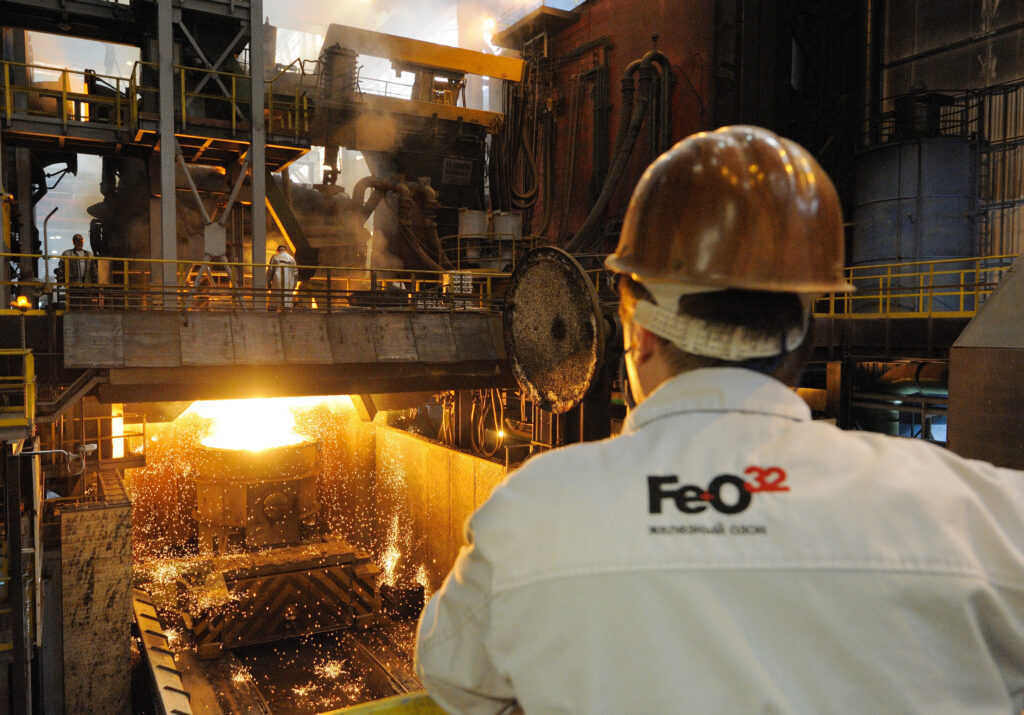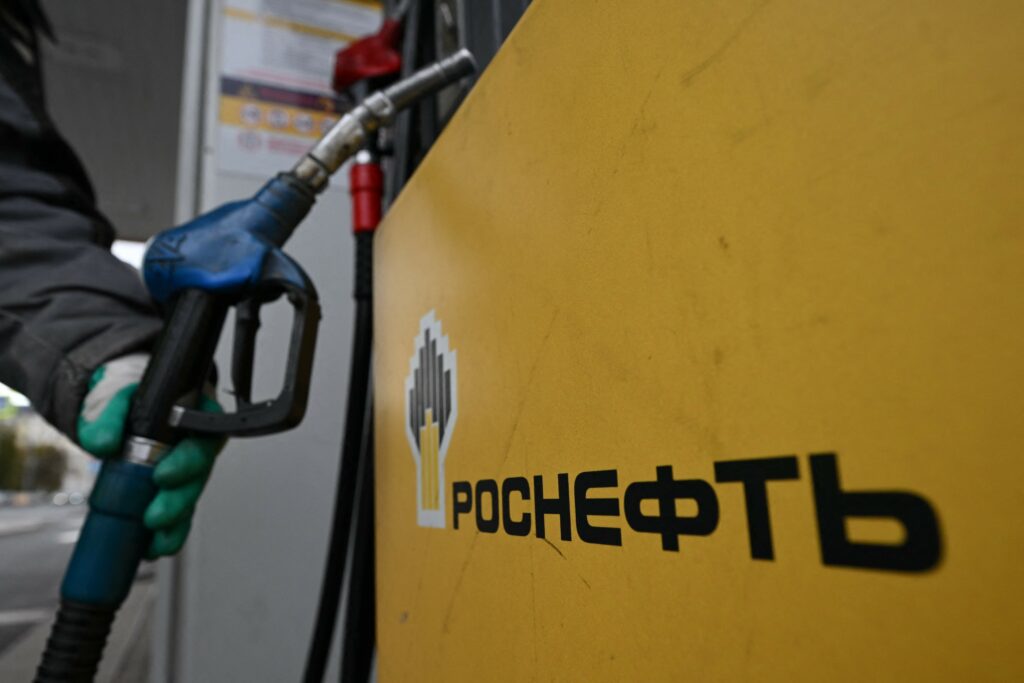Rosneft’s new 20-year contract to run a petroleum product supply terminal in the Lebanese town of Tripoli have sparked various speculations about how Russia is seizing the initiative in the Middle East due to a perceived American retreat. Yet this is misleading and exaggerated line of thought. An assumption of waning US influence in the Middle East doesn’t square with the rising number of US airstrikes in Syria, the expansion of the American Muwaffaq Salti airbase in Jordan, and of its Udeid airbase in Qatar. Nor does it tally with the presence of the USS John C. Stennis aircraft carrier strike group in the Gulf. Current US policy may be marked by rhetorical incoherence and public confusion — but not by retreat. Instead, declinist narratives about the US in the Middle East provide a convenient foil to avoid the elephant in the room facing Rosneft and other Russian firms: the growing incoherence of Russia’s oil strategy.
Russia’s oil sector has a domestic tax and policy framework that looks increasingly fraught amid ongoing sanctions and current predictions for the global oil market. Faced with this outlook, Rosneft’s play in Lebanon is an example of using prospective international dealmaking as a way of strengthening its negotiating stance back in Moscow. To offset any impending negative effects of domestic sectoral trends, Rosneft needs more deals like this one.
A general consensus has emerged in Moscow that Russian oil production will likely begin to decline sometime in the first half of the 2020s. Back in 2016, MinEnergo’s projections showed decline would set in by about 2022. Their stance has not changed, with energy minister Alexander Novak warning about peak oil production in 2021 without further changes to the tax code.
Early last August, chair of the National Security Council Nikolai Patrushev warned that western sanctions were having a serious effect on Russia’s oil sector. Namely, the rate at which Russian firms can recover oil generally lies around 25%. It’s as high as 50% for technological leaders like Norway’s Equinor. That means that even when Russian companies make new finds, they would utilize them less effectively than competitors currently shut out due to sanctions.
The situation is further complicated by a 2015 decision to change the classifications for oil fields based on their profitability. This pushes back systematic overviews of the existing state of reserves until after 2021. Under the present system, the Ministry of Natural Resources and the Environment (MinPrirody) estimates that oil fields currently in production will cease to keep pace with natural decline by 2025. Rosgeologiya – a Russian state holding that has expanded its role in geological oil exploration since 2014 – saw its 2018 revenues stay steady at 2017 levels despite last year’s price rally.
Russia’s firms are losing interest in exploring the Arctic shelf and have spent less during periods of lower prices on exploration in general. Rosgeologiya is seeking to pressure the sector to spend more on newer finds, hoping for more subsidies out of Moscow.
Without the Arctic offshore, Moscow has two options: hard-to-reach reserves and shale plays. Both are affected by the imposition of what are now functionally permanent sanctions from the US. Newer fields have come onstream since 2014, but their development has been affected by ongoing OPEC+ production cuts. Meanwhile, there are growing concerns about future production at Russia’s brownfields due to the need to use fracking equipment and techniques. Not a single new oil field was opened in 2016-2017, and the remaining easy-to-reach reserves are slim pickings. Rosneft’s abortive attempt to access Iranian oil reserves was driven by these concerns as much as politics.
Rather than subsidize domestic firms’ attempts to localize the production of imported western technology, Moscow has pivoted towards trying to close investment contracts with foreign firms. Given that Russian firms have begun asking western firms interested in projects to transfer their technology to them in case their projects are sanctioned, political risks for foreign firms are rising in both Washington and Moscow.
The Problem of Maintaining Production
Reduced domestic interest in exploration affects plans to coordinate production cuts with Saudi Arabia and OPEC. Energy Minister Alexander Novak has assured oil markets that Russian firms would “try to make [OPEC+] cuts faster” to help stabilize oil prices. However, production has risen 3.9% year-on-year for January and the technical explanations offered depend on colder temperatures in Siberia.
That may be true, but there’s more to it. Russian firms, including Rosneft, are pushing back against cuts because of the rising capital expenditures needed to maintain production at older fields or harder-to-reach new reserves. Post-2014 onshore finds in the Arctic have largely come onstream, meaning that their initial investment phases are over. Maintaining production at adequate levels to recoup operating costs is the baseline concern.
Rosneft won mineral extraction tax (MET) exemptions for production at its Samotlor field – a giant legacy brownfield from the Soviet period entering natural decline – worth 35 billion rubles ($535 million) annually over 10 years from the Ministry of Finance (MinFin) in late 2017. Rosneft has similar existing breaks for production at the Priobsky field in the Bazhenov formation, but is demanding even more from MinFin. MinFin calculates that further MET breaks would cost the budget over 460 billion rubles ($7 billion) by 2029 and wants to avoid further balkanizing the tax code. It is losing that fight.
Rosneft’s domestic position has also been strengthened by the tax maneuver because it’s raised costs for domestic refiners, privileging vertically-integrated companies. As Rosneft pushes to exploit this, its incentive to pursue further MET exemptions will strengthen as it seeks to offset rising capital expenditure requirements. This dynamic will serve to undermine the latest shifts in oil sector taxation.
The Problem of Taxation
The much-vaunted oil tax maneuver is set to annul all export duties on oil from their current rate of 30% by 5% annually until they reach 0% in 2024. This comes after Moscow reduced duties from 60% in 2014 to 30% in 2017. But both tiered reductions have been offset by increases in the MET.
The MET formula is complicated, but coefficients relating to the quality of oil, costs associated with production at different fields, and world oil prices are then divided by an established value to calculate the MET. The base coefficient was raised to 357 for 2018, and 428 for 2019-2021, increasing the tax load on extraction and reducing tax exposure to price volatility.
MinFin and MinEnergo have yet to agree on what taxation looks like after 2021, and the tax maneuver implies that all existing tax breaks given to oil companies for export duties would be transferred to MET exemptions. Russia’s budget is thus insulated from oil price fluctuations, and companies – theoretically – don’t see their overall tax loads increase. But it does raise the cost of production and creates political incentives to focus on expanding production at a time the sector faces considerable constraints on fully developing hard-to-reach reserves.
By all appearances, MinEnergo, the relevant cabinet ministers, and those close to the presidential administration at the National Security Council have adopted the line that oil production could decline by 40% come 2035 without tax reform and greater investment. Research institutes have similarly identified that the share of Russian production provided by hard-to-reach reserves is rising, requiring more capital expenditures.
In short, these tax changes save revenues for the budget at the expense of coherence among firms and refiners, increasingly distorting the bargaining process for tax breaks needed to keep production up and reach investment goals for Russia’s downstream sector. All of these changes ultimately benefit Rosneft, which can use its relative size on the Russian market and state-ownership to its advantage.
Schoolyard Fights
Though there is a clear geopolitical rationale for the Tripoli deal, Rosneft’s motivations are largely domestic. The company’s expansion into Iraqi Kurdistan and offtake agreements with Libya’s National Oil Company guarantee the flow of high-quality crude blends to European consumers while Rosneft redirects more of its production towards the Chinese market. Every international acquisition seen to advance national objectives then serves as a bargaining chip in Moscow to get more tax exemptions, subsidies, or else support to undermine domestic competitors.
Israel has repeatedly struck Iranian targets in Syria without concern for blowback, consistently escalating military tensions. Similarly, the Israeli government has hinted at potential action to be taken against Hezbollah in Lebanon. Both are of considerable concern as US policy appears to be escalating airstrikes in the short-run and Israeli PM Benjamin Netanyahu, openly hawkish on Iran, faces mounting corruption charges ahead of a snap election scheduled for April 9.
Igor Sechin has given himself an excuse to protect an investment, and another reason for Netanyahu to contact Moscow in advance of any actions undertaken that might threaten the terminal. Sechin has already inserted himself into Washington’s negotiations with Baghdad over oil production and Iran sanctions thanks to Rosneft’s stakes in Iraqi Kurdistan’s oil export infrastructure and oil fields.
Sechin is operating by the basic principle of a political first-mover advantage. He who controls the foreign asset gets first dibs on a slice of the relevant policy portfolio. Lacking access to western technology and financing and facing domestic production constraints, Rosneft is doing what it does best: using politicized deals with suboptimal returns to secure favors at home and expand its influence. It’s going to need to do so more often as sanctions, aging oil fields, and harder-to-reach production sites make bringing oil to market more expensive.










